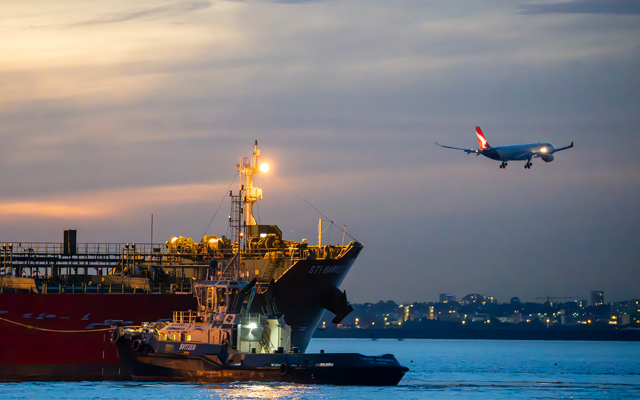
Qantas, Sydney Airport and Ampol, supported by Qantas’ SAF Coalition partners, have marked the largest ever commercial importation of Sustainable Aviation Fuel (SAF) into Australia, with nearly two million litres of unblended SAF arriving last week.
The fuel was imported by Ampol from Malaysia to its Kurnell facility in early May and is currently being blended with conventional aviation fuel before testing and certification so that it can be distributed into the Sydney airport supply chain. It will then be used on flights departing from Sydney Airport over the next few weeks.

Blended at a ratio of approximately 18 per cent, the fuel can power the equivalent of 900 flights from Sydney to Auckland on Qantas and Jetstar’s 737 aircraft, reducing the resulting carbon emissions from those flights by a total estimated 3,400 tonnes. This is roughly equivalent to the annual emissions generated by 800 cars.
In 2023, Qantas established the SAF Coalition which consists of 15 leading Australian and global companies, all supporting the use of SAF at scale to help reduce their air travel and freight emissions, further demonstrating the demand for SAF that exists across industries
Once established, domestic SAF production has the potential to contribute approximately A$13 billion (US$8.3 billion) in GDP annually by 2040, while supporting nearly 13,000 jobs in the feedstock supply chain and creating 5,000 new jobs to construct and run the facilities.
In line with its Net Zero by 2050 ambition, Qantas is targeting 10 per cent of its fuel use to come from SAF by 2030 and approximately 60 per cent by 2050.
Qantas currently uplifts SAF from London Heathrow and is exploring opportunities at other international locations. Through its A$400 million climate fund, Qantas is also backing several other SAF-focused initiatives, including planned biofuel facilities in Queensland and New Zealand, and a recently announced investment in a climate-focused VC fund.
Sydney Airport has an ambition for 50 percent of the fuel uplift at the airport by 2050 to be SAF.
The importation follows the signing of a Memorandum of Understanding between Qantas and Sydney Airport to work together to further facilitate the development of a domestic SAF industry in Australia.




















